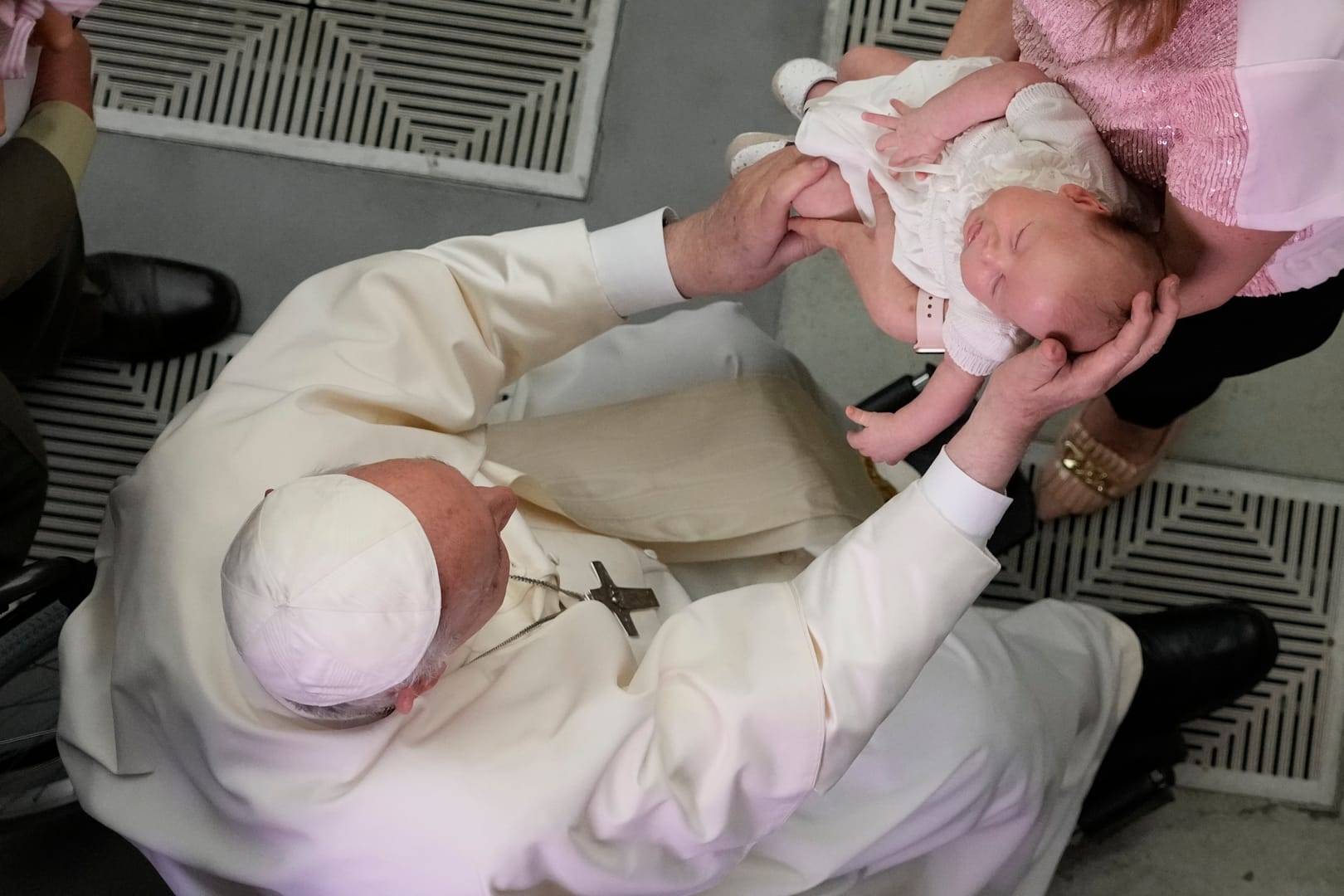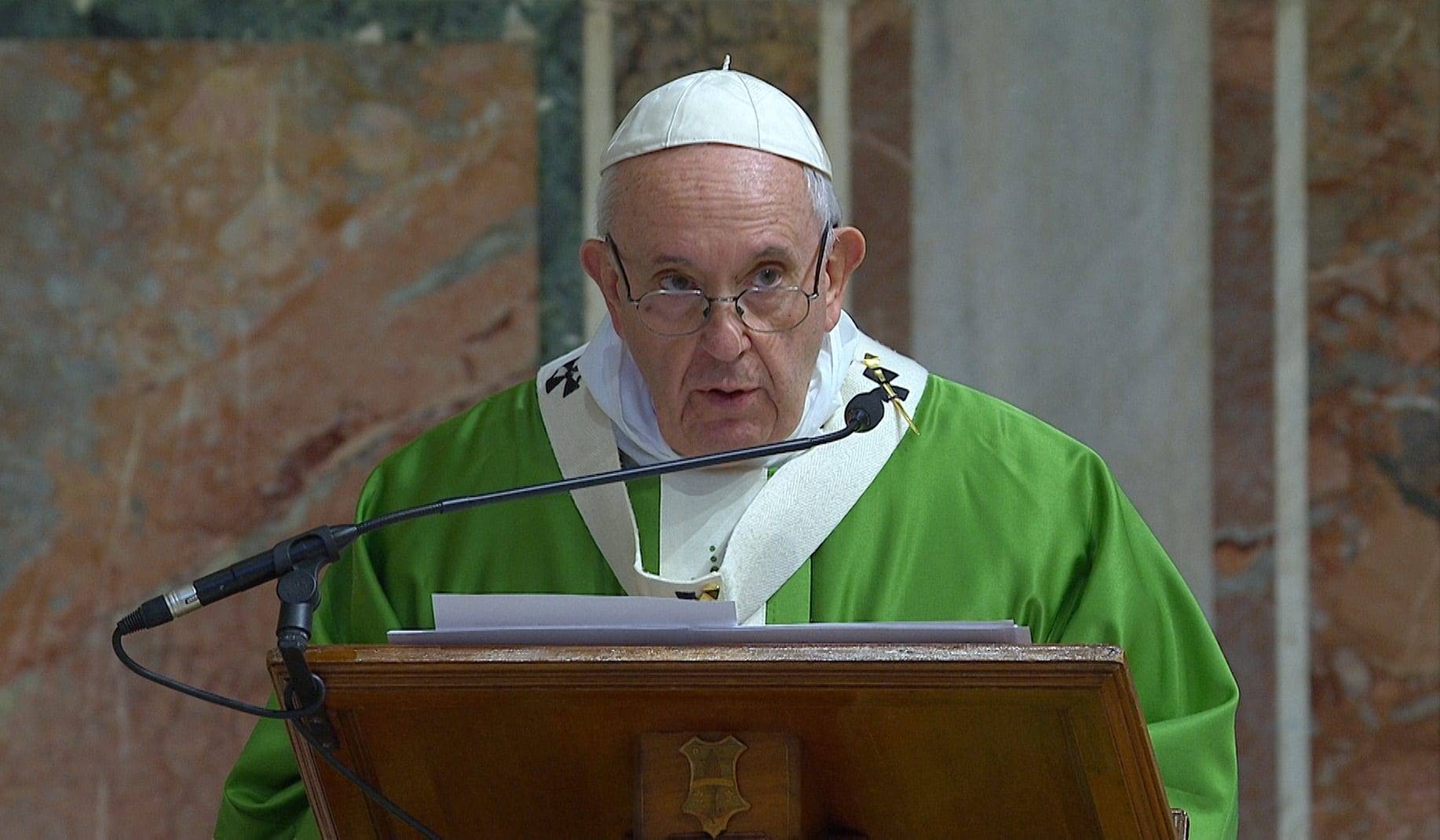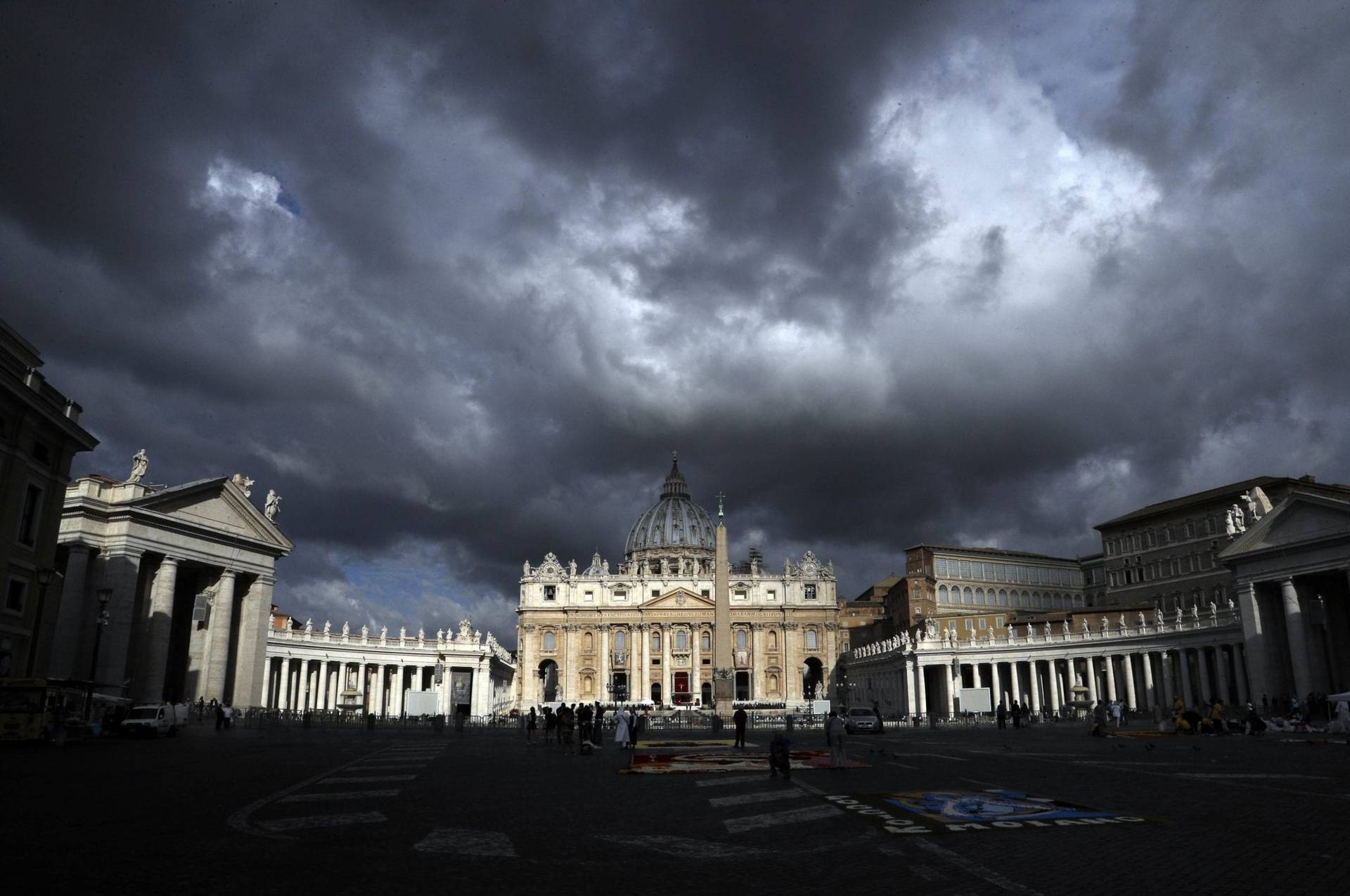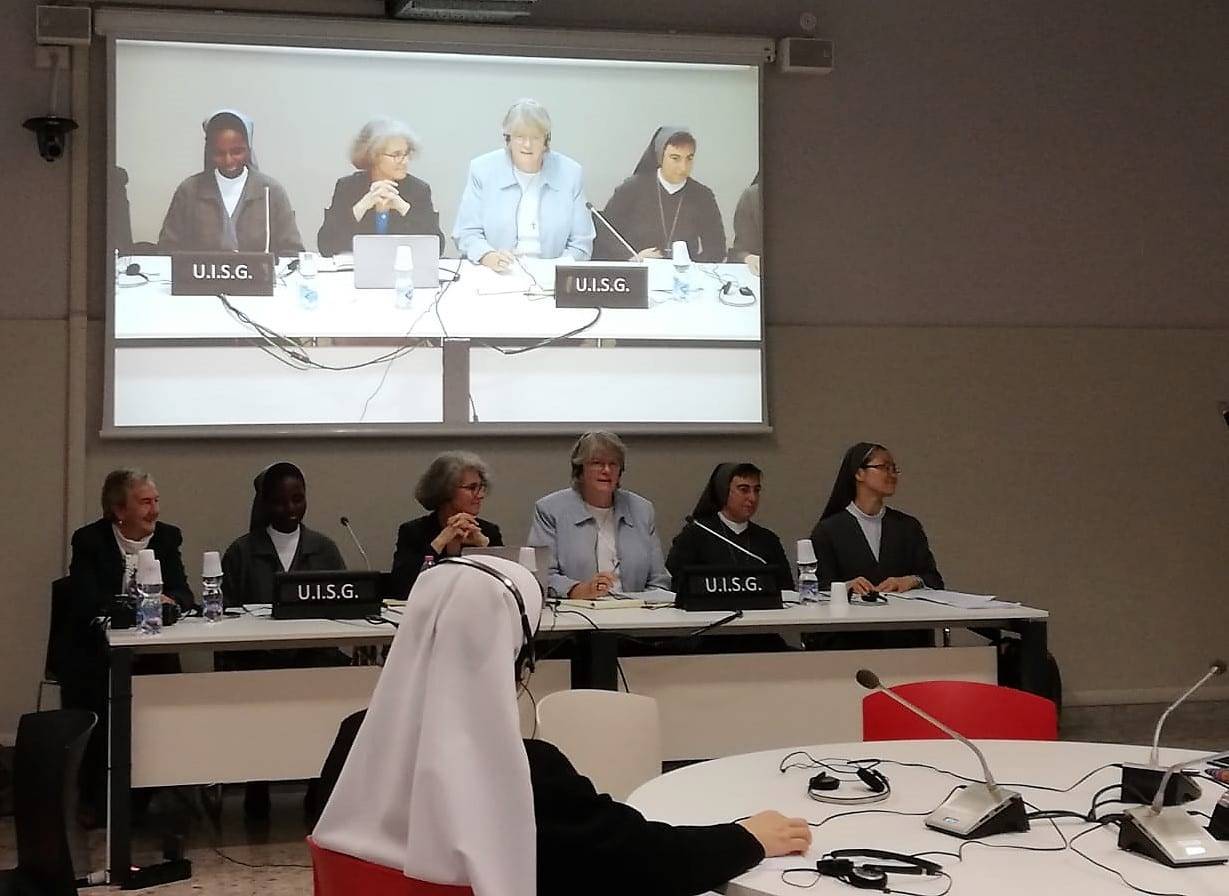ROME – Meeting against the backdrop of massive clerical sexual abuse scandals in various parts of the world, a month-long summit of Catholic bishops wrapped up Saturday affirming that sexual abuse by Church personnel inflicts “suffering that can last a lifetime” but pulled back from an explicit endorsement of a “zero tolerance” policy.
“Different types of abuse committed by some bishops, priests, religious and laity provoke in those who are victims, including many young people, suffering that can last a lifetime to which no repentance can bring remedy,” the bishops said in a final document adopted Saturday night.
“The synod reaffirms the firm commitment to the adoption of rigorous prevention measures that prevent [abuses] from being repeated, starting from the selection and training of those who will be entrusted with tasks of responsibility and education,” the document says.
However, an earlier draft of the final document had the bishops “confirming the policy of ‘zero tolerance’,” language which did not appear in the text adopted by a wide majority on Saturday.
More than 340 suggested amendments were made by bishops and other participants during discussion of the final document, and text voted on Saturday night differs from the draft presented earlier in the week in several significant respects.
The summit did not recommend any concrete new measures to fight the abuse crisis, presumably awaiting the results of a meeting of presidents of bishops’ conferences from around the world called by Pope Francis for February on child protection.
The final document of an Oct. 3-28 Synod of Bishops on young people, faith and vocational discernment also struck a delicate balance on matters of gender and sexuality, clearly affirming the “difference between masculine and feminine.” Notably, the terms “LGBT” and “gender” do not appear.
Yet the document also encourages pastoral programs of outreach to homosexual persons.
Briefly, the bishops also noted a desire among youth for a “greater role for women” in the Church.
“A Church that tries to live a synodal style cannot help but reflect on the condition and role of women within it, and consequently also in society. Young people ask for it with great force,” the bishop said.
“The reflections developed require to be implemented through a work of courageous cultural conversion and of change in daily pastoral practice. An area of particular importance to this regard is that of the female presence in ecclesial organs at all levels, also in positions of responsibility, and of female participation in ecclesial decision-making processes respecting the role of the ordained ministry.”
“It is a duty of justice, which finds inspiration in the way in which Jesus has related to the men and women of his time, in the importance of the role of some female figures in the Bible, in the history of salvation and in the life of the Church,” the bishops said.
Finally, there’s a section on “synodality” in the document which surprised and even irritated some bishops, since it did not result from the discussions within the summit.
“In this synod, we felt that the collegiality which unites the bishops cum Petro et sub Petro (“with Peter and under Peter”) in solicitude for the People of God is called to be articulated and enriched through the practice of synodality at all levels,” the document says.
Abuse
The bishops began by acknowledging different types of abuse, including “of power, economic, of conscience and sexual.”
“There’s a clear duty to eradicate forms of the exercise of authority in which [abuses] flourish, and to challenge the lack of responsibility and transparency with which many cases were handled,” they say. “The desire for domination, the lack of dialogue and transparency, forms of a double life, a spiritual void as well as psychological fragility are the terrain upon which corruption prospers.”
They flagged clericalism as a special cause of the abuse crisis, citing Francis.
Clericalism, the pope said earlier this month “is born from an elitist and exclusive vision of vocation, which interprets the ministry received as a power to exercise rather than a free and generous service to offer,” the pope said.
The bishops voiced a note of gratitude to victims.
“The synod expresses gratitude to those who had the courage to denounce the evil right away: they help the Church to become aware of what happened and of the necessity of reacting decisively.”
Sexuality
Although it avoids the controversial terms “LGBT” or “gender,” the final document does refer to “sexual orientation,” though in a more cautious fashion than an earlier draft of the final document.
“There are issues related to the body, affectivity and sexuality that need a deeper anthropological, theological and pastoral elaboration, to be realized with methods at the most convenient levels, from local to universal,” they say.
“Among these emerge in particular those relating to the difference and harmony between male and female identity and sexual inclinations,” the bishops say. “In this regard, the synod reaffirms that God loves each person and so does the Church, renewing its commitment against all discrimination and violence on a sexual basis.”
Although that paragraph was largely a quotation from a 1986 document from the Vatican’s Congregation for the Doctrine of the Faith, it nevertheless drew the largest number of “no” votes during Saturday’s balloting. It was adopted by a vote of 178 to 65, with 166 votes being necessary to obtain a two-thirds majority and thus be adopted.
The synod “equally reaffirms the determining anthropological relevance of the difference and reciprocity between man and woman, and considers it reductive to define the identity of a person solely by their ‘sexual orientation,'” the bishops also said.
The bishops do, however, encourage outreach to homosexual persons.
“Many Christian communities have paths of accompaniment in the faith for homosexual persons, and the synod recommends favoring them,” they say. “On these paths, people are helped to read their own history; to adhere with freedom and responsibility to their baptismal call; and to recognize the desire to belong and contribute to the life of the community, and to discern the best forms of doing so.”
“In this way, every young person, no one excluded, is helped ever more to integrate the sexual dimension into their personality, growing in the quality of relationships and journeying towards the gift of self,” they say.
As a footnote, another element of the final document that stirred some complaint among bishops prior to the vote, but which remains intact, is a statement in paragraph three that the text must be read together with the Instrumentum laboris, or working document, for the synod. That could be read to suggest that the two texts enjoy magisterial value.
If so, then the omission of the term “LGBT” may not make much practical difference, since it does appear in paragraph 197 of the Instrumentum. The term “gender issues” appears in paragraph 53.
Synodality
Although the concept of “synodality” may not have figured prominently in discussions during the summit, sources Saturday told Crux that it nevertheless enjoyed strong support from the young people who took part.
In part, that may be because it’s phrased in the final document partly as a tribute to them.
“In this synod, we’ve felt that the co-responsibility lived with young Christians is a source of deep joy also for the bishops,” it says. “We recognize in this experience a fruit of the Spirit who continually renews the Church and calls it to practice synodality as a way of being and acting, promoting the participation of all the baptized and persons of good will, everyone according to their age, state of life and vocation.”
The document says that this synod has “awakened” a sense of synodality in the Church.
“In a synodal Church, no one should ever be placed, or place themselves, aside,” it says. “That’s the way to avoid both clericalism, which excludes many from decision-making processes, and the clericalization of the laity, which confines them rather than launching them towards a missionary commitment in the world.”
Synodality, according to the document, also has consequences for Church governance. Endorsing an “inverted pyramid” approach, the document calls for joint formation among young laity and young religious and priests on the “exercise of leadership.”
In a paragraph that drew significant numbers of “no” votes, while still passing by a comfortable margin, the bishops said, “The lived experience has rendered participants in the synod aware of the importance of a synodal form of the Church for the proclamation and transmission of the faith.”
“In the course of the exchanges and through the speeches, the synod helped certain fundamental traits of a synodal style, to which we’re all called to convert, to emerge,” they said.
That language was adopted by a vote of 203 in favor, 39 against.













